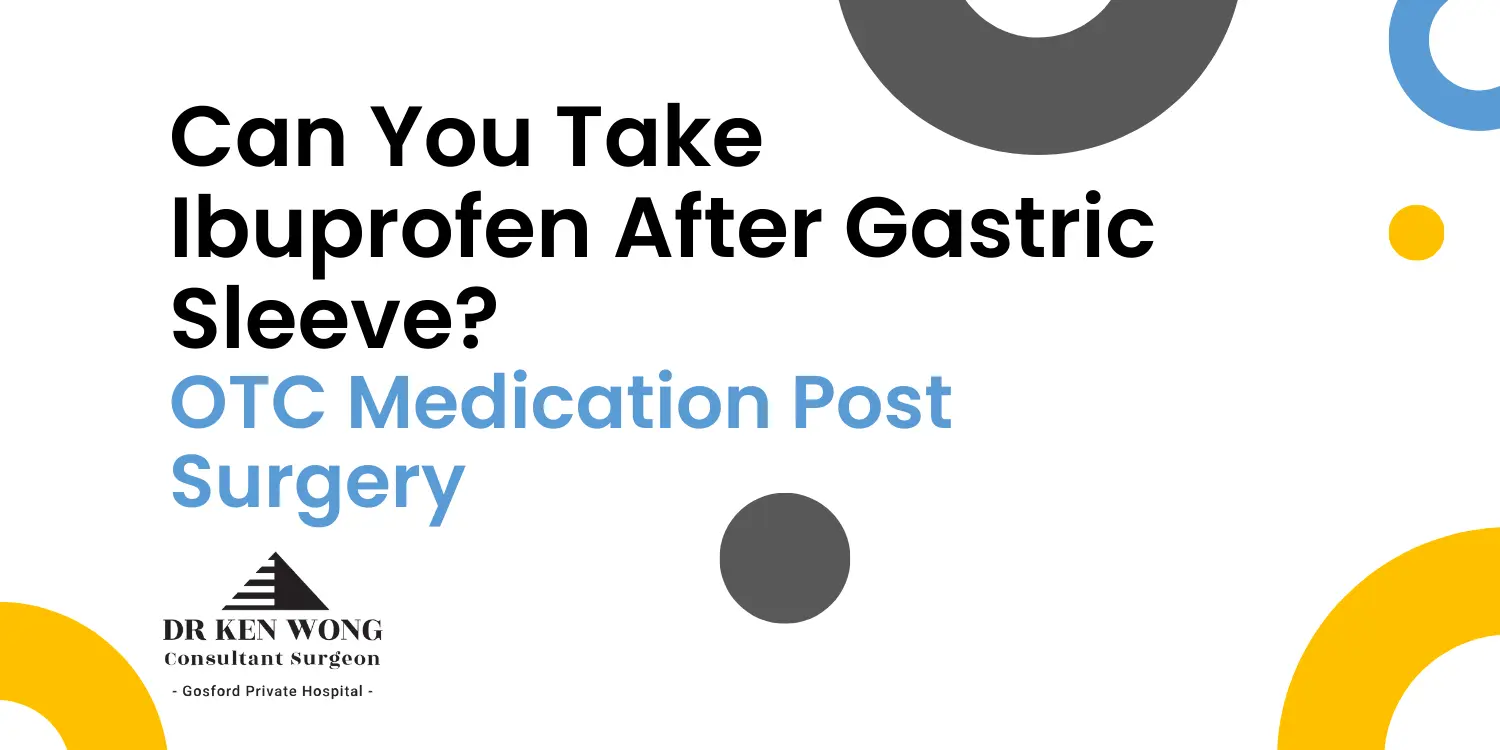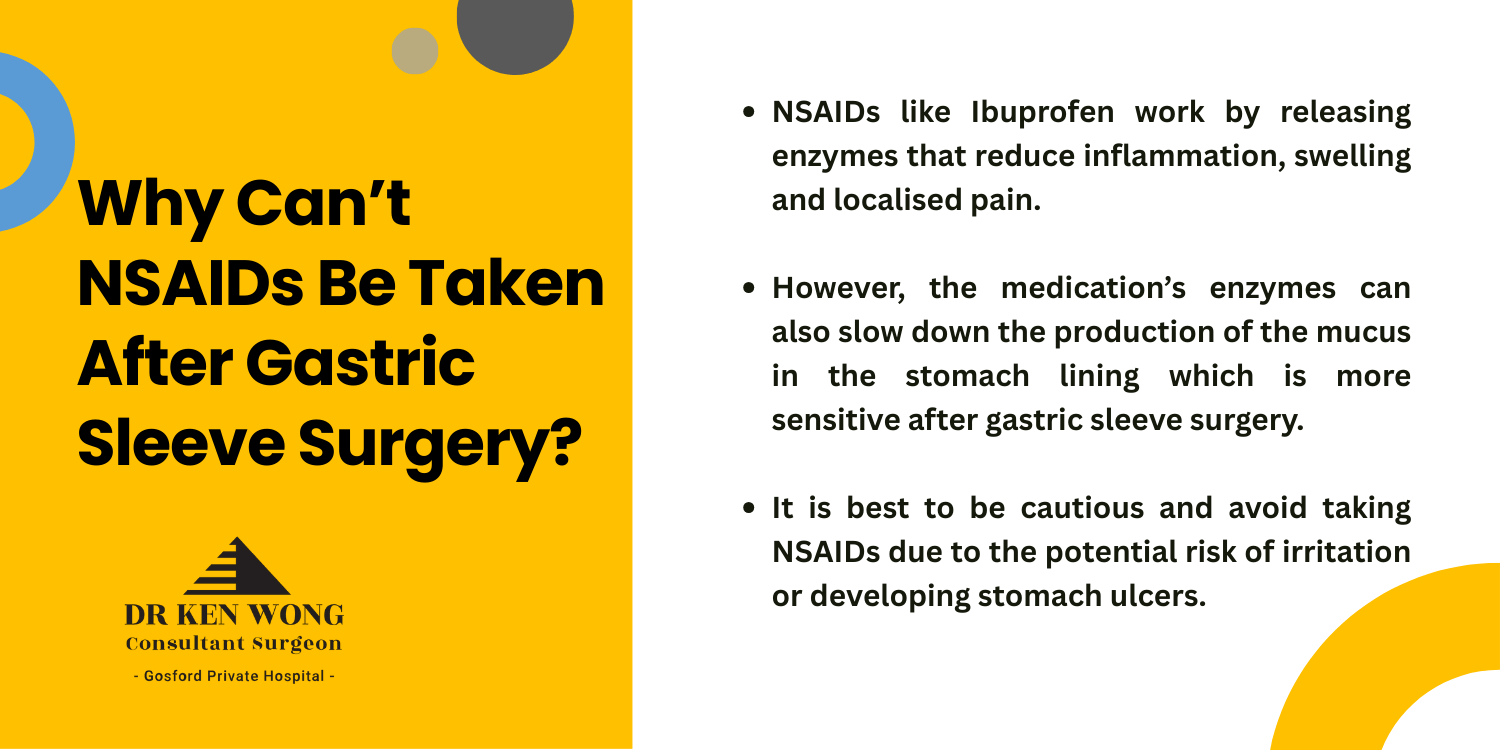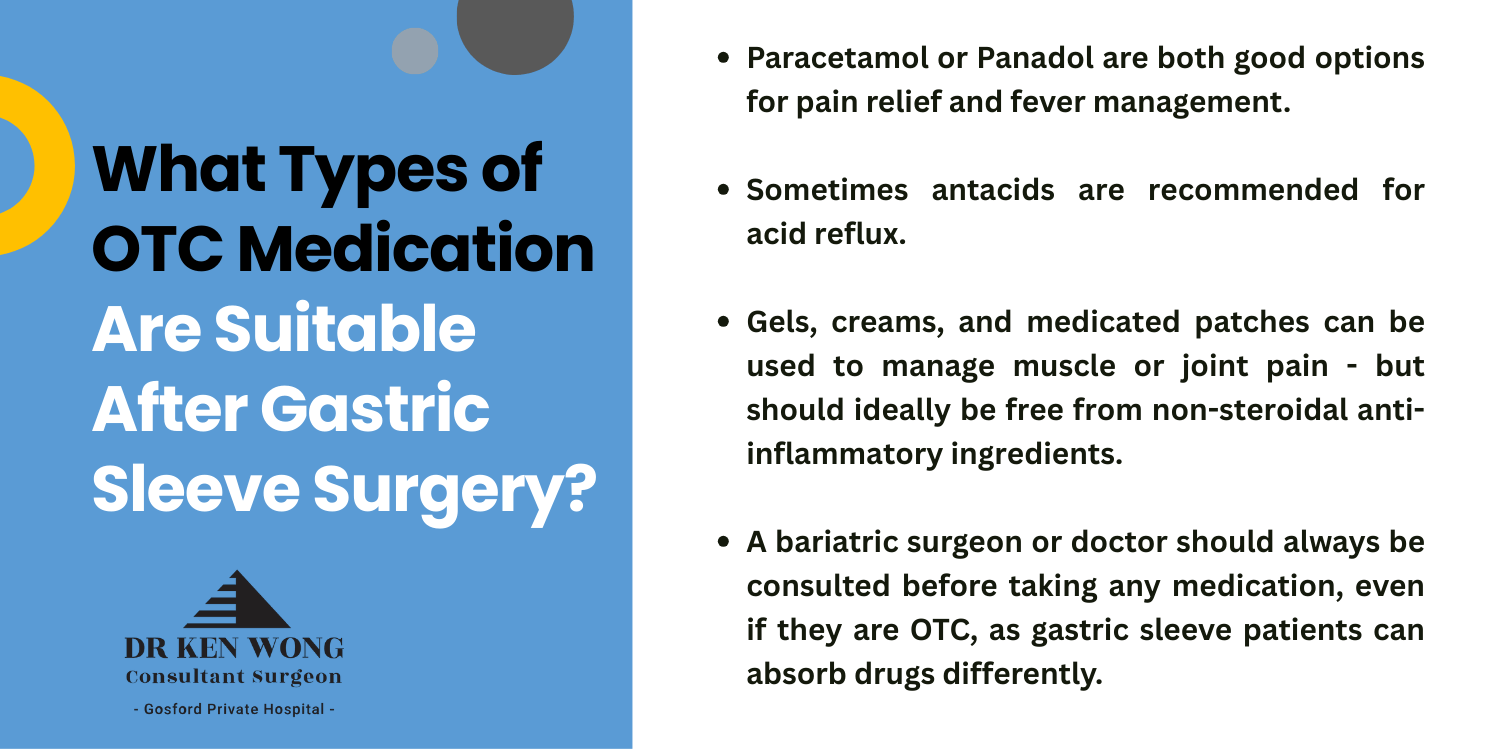
Gastric sleeve surgery results in significant changes to the digestive system, particularly the stomach. These changes can affect the body’s ability to process medication, in the immediate aftermath and years after recovery.
Our gastric sleeve patients often have questions about whether common over-the-counter (OTC) medications like Ibuprofen and Paracetamol can be taken after surgery and recovery. Here’s a clear guide to which OTC medications patients should avoid post-gastric sleeve surgery.
Can You Take Ibuprofen After Gastric Sleeve?
Generally speaking, it’s advised to avoid taking any non-steroidal anti-inflammatory drugs (NSAIDs) after gastric sleeve surgery, including Ibuprofen. Ibuprofen is branded as Nurofen, Advil, or Brufen in Australia.
This recommendation applies not only during the recovery period but also extends to at least two years post-surgery. After the two-year period, gastric sleeve patients should speak to their GP to check in on suitability of using NSAIDs.
Over-the-Counter NSAIDs to Avoid
-
Voltaren
-
Aspirin
-
Disprin
-
Nuromol
-
Difflam
-
Astrix
-
Sudafed
-
Inflamax
NSAIDs are commonly found in tablet form, but may also appear in the form of creams, gels, sprays, and effervescent tablets. Always check with your GP or bariatric surgeon about whether a product contains non-steroidal anti-inflammatory ingredients before taking it.
Why Can’t NSAIDs Be Taken After Gastric Sleeve Surgery?
NSAIDs like Ibuprofen work by releasing enzymes that inhibit the production of inflammatory compounds in the body, reducing inflammation, swelling and localised pain.
However, the medication’s enzymes can also slow down the production of the mucus in the stomach lining. The stomach after gastric sleeve is particularly sensitive, so without the protective lining there is a higher risk of irritation and developing ulcers, particularly at the surgical site. Stomach ulcers can cause chest and abdominal pain, and in severe cases, gastrointestinal bleeding.
Evidence from a 2022 study on post-surgery nonsteroidal anti-inflammatory drug (NSAID) use supports the link between such medications and an increased risk of peptic ulcers for gastric bypass patients. The same study found no evidence of an increased risk for gastric sleeve patients, but did not conclude that NSAIDs are safe to take post-surgery.
When it comes to weight loss and bariatric procedures, it’s always better to err on the side of caution - if you have not spoken to your GP or surgeon, the risk of complications far outweighs the benefits of taking NSAIDs. Stomach ulcers and gastrointestinal bleeding can lead to a need for urgent medical intervention or corrective surgery.

What Types of OTC Medication Are Suitable After Gastric Sleeve Surgery?
Paracetamol or Panadol works effectively for pain relief and fever management without affecting the stomach lining.
Gels, creams, and medicated patches can be used to manage muscle or joint pain - but should ideally be free from non-steroidal anti-inflammatory ingredients.
Gastric sleeve patients may also be recommended Antacids, such as Gaviscon, to relieve heartburn or acid reflux that can occur during recovery.
All medications, including OTC products, should be checked with a bariatric surgeon or doctor before use, as gastric sleeve patients can absorb drugs differently. Medications that are generally considered safe can still present risks depending on individual medical conditions.

Considerations for Taking Medication After Surgery
After gastric sleeve surgery, patients will have a much smaller stomach - about 20-30% of its original size. A smaller stomach has less surface area to absorb medication which means medications can be less effective.
Medications high in sugar, such as cough syrup, should be avoided as they can trigger dumping syndrome. Dumping syndrome occurs when the stomach’s contents move too quickly into the small intestine, leading to symptoms such as nausea, dizziness, and heart palpitations. Patients should also avoid effervescent tablets, as the gas released can get trapped and cause bloating and cramps.
As always, it’s best to speak to your GP or surgeon directly, and get a clear idea of the OTC medication that is safe to consume, and which medications to avoid.
